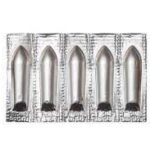Can I Pee After Inserting Suppository?

Suppositories are another way to deliver drugs to the body when other routes, such as oral, cannot be used. A suppository is small and may be round, oval, or cone-shaped. A substance, such as cocoa butter or gelatin, surrounds the medication. The suppository dissolves to release the drug once inside the body.
Suppositories may treat the local area, or the medicine may travel to other parts of the body through the bloodstream.
Types of Suppositories
Suppositories have a base made from substances like gelatin or cocoa butter that surrounds the drug. As the warmth of your body melts the outside, the drug slowly releases.
Different types of suppositories go into the rectum, vagina, or the duct that empties your bladder called the urethra. Sometimes they treat the area where you put them in. Or the medicine absorbs into your blood and travels to other parts of your body.
Rectal suppositories go in your bottom. They are about an inch long and have a rounded or bullet-shaped tip. You might take them to treat:
• Allergies
• Anxiety
• Constipation
• Fever
• Hemorrhoids
• Motion sickness
• Nausea
• Pain and itching
• Seizures
• Mental health problems, such as schizophrenia or bipolar disorder
Vaginal suppositories are oval-shaped. You can use them for:
• Bacterial or fungal infections
• Vaginal dryness
• Birth control
Urethral suppositories are rare. There’s only one kind, MUSE, which men with erection problems can use to take the drug alprostadil. The suppository is about the size of a grain of rice.
Can I Pee After Inserting Suppository?
Yes, for most women using a vaginal suppository, this is quite easy. There are two openings in the vulva — the vaginal opening and the opening to the urethra (the hole you pee out of). The urethral opening is the tiny hole that you pee out of, located just below your clitoris. The vaginal opening is right below your urethral opening so urinating most time does not affect the effectiveness of the vaginal suppository.
However, when using urethral suppositories, it is recommended that you pee (urinate) before inserting the suppository so that the small amount of urine normally left in your urethra will help dissolve the suppository after it is inserted.





